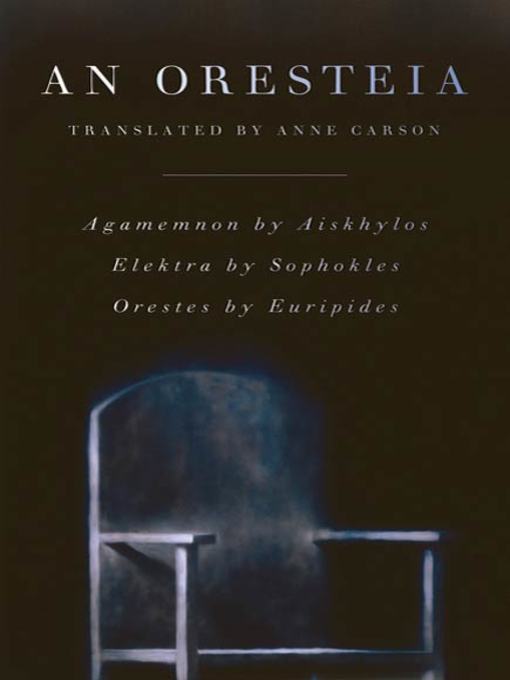A Bold, Iconoclastic New Look at One of the Great Works of Greek Tragedy
In this innovative rendition of The Oresteia, the poet, translator, and essayist Anne Carson combines three different visions—Aischylos' Agamemnon, Sophokles' Elektra, and Euripides' Orestes—giving birth to a wholly new experience of the classic Greek triumvirate of vengeance. After the murder of her daughter Iphegenia by her husband Agamemnon, Klytaimestra exacts a mother's revenge, murdering Agamemnon and his mistress, Kassandra. Displeased with Klytaimestra's actions, Apollo calls on her son, Orestes, to avenge his father's death with the help of his sister Elektra. In the end, Orestes, driven mad by the Furies for his bloody betrayal of family, and Elektra are condemned to death by the people of Argos, and must justify their actions—signaling a call to change in society, a shift from the capricious governing of the gods to the rule of manmade law.
Carson's accomplished rendering combines elements of contemporary vernacular with the traditional structures and rhetoric of Greek tragedy, opening up the plays to a modern audience. In addition to its accessibility, the wit and dazzling morbidity of her prose sheds new light on the saga for scholars. Anne Carson's Oresteia is a watershed translation, a death-dance of vengeance and passion not to be missed.
- New eBook additions
- Available now
- Most popular
- Autism Awareness Month
- Childhood Classic eBooks
- Dyslexia
- Unmissable Picture Books
- Try something different
- Crime Doesn't Pay
- Novella & Short Story Classics
- Read-Along
- Out-of-this-world Sci-Fi
- The Booker Prize
- See all ebooks collections
- New audiobook additions
- Autism Awareness Month
- Books on Film
- Try something different
- Available now
- Read by a Celeb
- Most popular
- New kids additions
- New teen additions
- Interesting Lives: Memoirs & Biographies
- Crime Doesn't Pay
- Popular Audiobooks
- Series Starters
- See all audiobooks collections



